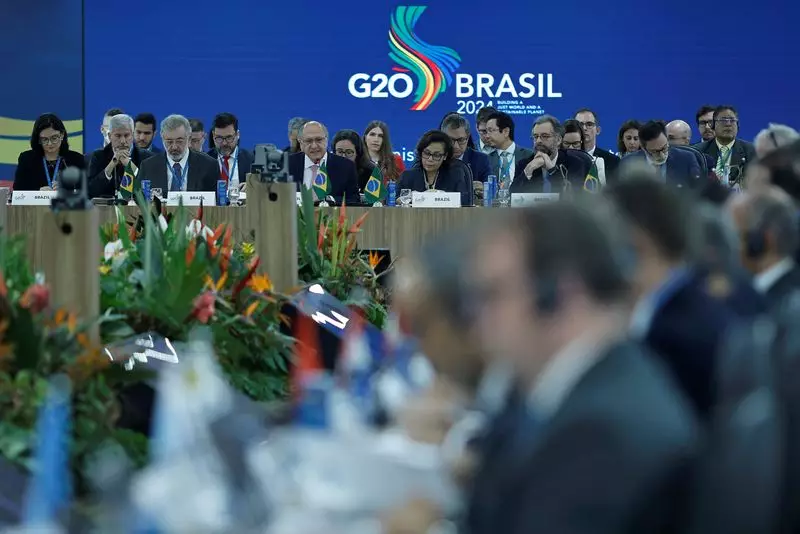In a pivotal gathering in Brasilia, the G20 ministers underscored the importance of inclusive international trade, particularly emphasizing the active participation of women. This meeting marks a significant milestone, as it acknowledges the need to integrate women’s contributions into the global trade framework. Brazil’s Vice President and Trade Minister, Geraldo Alckmin, articulated the consensus reached at the meeting, which aims to resonate through discussions at the upcoming G20 summit in Rio de Janeiro this November. The decision to focus on women’s inclusion reflects a broader commitment to diversify and strengthen the global economy, allowing more individuals to benefit from trade opportunities.
The call for reform of the World Trade Organization (WTO) was central to the discussions, as the ministers advocated for an expedited conflict resolution system that is more responsive and effective than the existing protocols. The Brazilian government has long positioned itself as a champion of tackling systemic barriers in trade, and the urgency to expedite these reforms echoes their commitment to addressing contemporary challenges faced by nations. By presenting a more agile and efficient trading framework, countries can better navigate disputes, thereby fostering a healthier economic environment that enables all nations to thrive.
Brazil’s leadership in combating climate change was underscored by the ministers’ agreement on prioritizing environmentally sustainable trade practices. As the host of the upcoming COP30 climate talks, Brazil’s emphasis on marrying economic development with environmental stewardship is commendable. By advocating for trade and investment policies that are conscious of ecological impacts, Brazil seeks to set a precedent that could ripple through international negotiations, compelling other G20 nations to adopt similar stances on sustainability.
While the primary focus of the G20 meeting was on trade and sustainability, underlying tensions remained palpable regarding geopolitical issues, particularly concerning Russia, Ukraine, and Gaza. As discussions ensued, it became evident that member nations were divided on the appropriateness of addressing such contentious issues within the G20 framework. Despite these disagreements, there was a pragmatic consensus to focus on unifying themes, such as the inclusion of women in trade, which showcases diplomatic willingness to transcend divisive matters. This illustrates how global forums can bridge ideological gaps by redirecting focus towards universally beneficial goals.
The G20 meeting in Brasilia served as a crucial platform for initiating discussions centered on sustainable development, gender inclusivity, and the reform of global trading systems. Brazil’s proactive approach not only addresses the current economic landscape but also anticipates future challenges, reinforcing the significance of cooperation among nations. As the G20 leaders prepare for their summit in Rio, the principles established in Brasilia may very well shape the future of international trade, promoting a more inclusive and equitable world economy.

